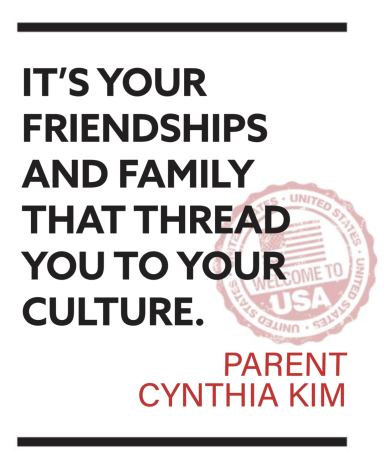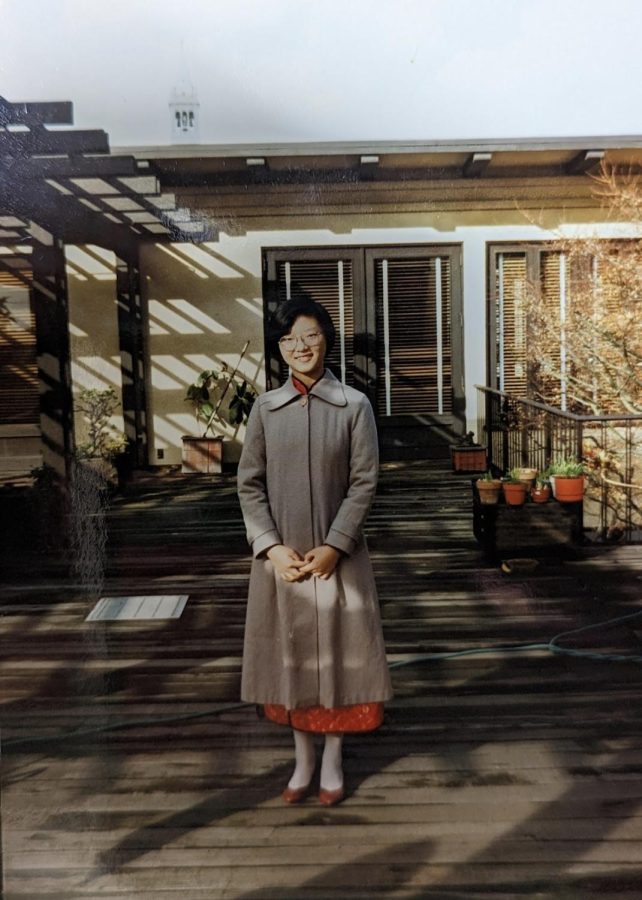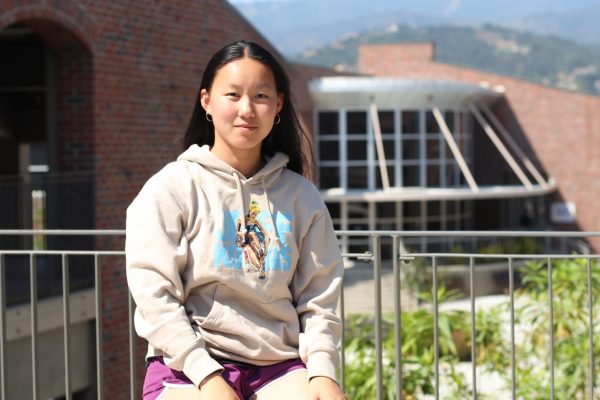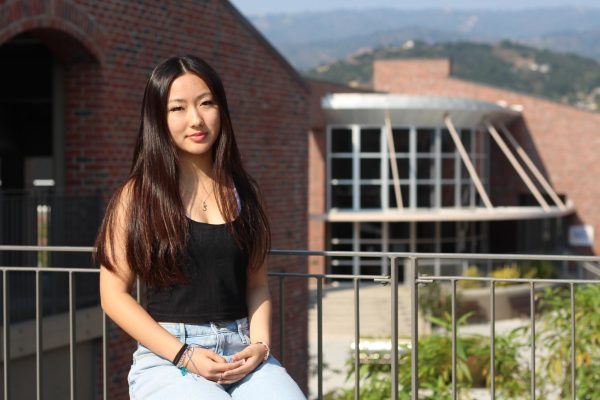Through generations
Exploring how community members’ cultural identities have changed over generations
Kim, dressed in cultural attire, poses before attending a Chinese New Year celebration at UC Berkeley. Photo courtesy of Cynthia Kim | Used with permission
April 26, 2023
Junior Danica Novotny doesn’t expect anyone’s first impression of her to be that her family immigrated from outside the United States. Still, Novotny — a third-generation immigrant — believes that her heritage has greatly shaped who she is. Novotny’s grandparents on her mom’s side immigrated from Hong Kong, while her grandparents on her dad’s side immigrated first from Czechia to Canada, and later to the U.S. in search of better opportunities.
Although both of Novotny’s parents were born and raised in the U.S., they have remained close with her grandparents. As a result, many of her grandparents’ superstitions have impacted how Novotny lives. For instance, Novotny says the maternal side of her family avoids the number four, as in Mandarin, it sounds similar to the word “death” and is thought to bring bad fortune.
Similarly, junior Sidhant Malik, whose parents immigrated from India, says that Hinduism, his parents’ faith, still holds a fairly strong impact on his family’s lifestyle. Some traditions and customs are foundational in his day-to-day life, such as going to temples. Others influence how his family handles holidays or significant events — for instance, when loved ones pass away, Malik and his family pray for 13 days and their bodies are cremated.
Both Malik and Novotny say their families immigrated to the U.S. in search of better educational and work opportunities for them and their families. In contrast, MVHS parent Cynthia Kim initially came to the United States only intending to study abroad for a year in high school, not to immigrate.
Kim’s father was an astrophysicist and had received a year-long international research grant at UC Berkeley. The grant was later extended, and Kim ultimately stayed to attend college, find work and, after meeting her husband in college, start a family. Although living independently in college finally required Kim to assimilate into an American lifestyle, she admits that her high school years remain “the hardest years of [her] entire life.”
 “[As an immigrant], you don’t want to be considered foreign, right?” Kim said. “You want to assimilate into your new setting as quickly as possible. But I dressed wrong. I spoke wrong. Everything felt wrong. I kept in touch with my junior high school friends through snail mail, and I feel that it’s truly those connections that kept me [whole]. It’s really your friendships and your family that thread you to your past and to your culture.”
“[As an immigrant], you don’t want to be considered foreign, right?” Kim said. “You want to assimilate into your new setting as quickly as possible. But I dressed wrong. I spoke wrong. Everything felt wrong. I kept in touch with my junior high school friends through snail mail, and I feel that it’s truly those connections that kept me [whole]. It’s really your friendships and your family that thread you to your past and to your culture.”
To remain connected to her cultural roots in Hong Kong, Novotny spent eight years learning Mandarin. Despite never visiting the countries her grandparents immigrated from, Novotny says she’s never felt disconnected from others who share her heritage.
“[The difference between us has] not been significant at all,” Novotny said. “I still feel connected to my culture and my background.”
In contrast, despite Malik’s efforts to maintain his relationship with his heritage by praying and following his parents’ lead at special events and gatherings, he feels that his cultural identity has shifted from that of his parents and grandparents.
“Every generation, we lose a lot of traditions and customs,” Malik said. “I would say I’m in between [American and Indian] because I was born here. I’m a mix between doing mostly American things while still trying to maintain some connections to my Indian heritage.”
Likewise, Kim notes that the decades she’s spent in the U.S. have transformed her cultural identity into something different from that of her parents, who traveled back to Asia and remain Chinese citizens.
“Nowadays, there are moments where I talk to my mom, and she [says], ‘That thought is just so American,’” Kim said. “I have to remind her [that] … how I look, perhaps even some of the foundational ideas of who I am [and] what my culture is, were formed in the years when I was in China. But how I think, how I process information, how I acquire my knowledge, those were all in the years when I [was] in the U.S.”


















